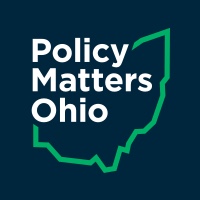
Regulating short-term rentals a smart move
March 28, 2016
Regulating short-term rentals a smart move
March 28, 2016

Earlier this month, Cuyahoga County reached agreement with Airbnb, the residential rental web site, to collect the 5.5 percent county lodging tax. Great news. This levels the playing field with hotels and allows the county to reap needed revenue. Now, the city of Cleveland needs to finish its own ordinance regulating this growing industry. Otherwise such rentals will go untaxed under state law. Such taxes until now have not been easily collectible. While we’re at it, we need to fill gaps in the county agreement, which calls for taxes to be collected but otherwise leaves Airbnb unregulated.
Technological advances have led to a quickly growing short-term rental market for temporary housing in cities across the United States, including Cleveland. The leading company in the business, Airbnb, was valued as high as $25.5 billion as recently as last year after only seven years of existence. Airbnb facilitates short-term rentals of private rooms in houses, entire houses, and apartments via its website. The company collects a percentage fee from the both renter and owner. Other companies such as FlipKey and HomeAway offer similar services.
This industry presents major issues for local governments and communities. Sometimes transactions go untaxed or occur in violation of local lodging laws. Local residents in some areas have complained of noise, crime and other problems. Some cities that lack affordable housing have seen rising local rents due to a tightening housing market. In other words, long-time residents who struggle to afford a home may be pushed out of their neighborhoods because properties are converted into rentals for transients. This is less of an issue in Cleveland than in, say, San Francisco. But as Cleveland prepares to host the upcoming Republican National Convention this July, the city needs to address the arrival of this industry.
Cleveland City Council is considering a proposed emergency measure to bring the industry under local law, require payment of the lodging tax, and provide for some basic safety and regulatory measures. Cleveland would join a number of other cities, states and communities taking such action, including Philadelphia, which modified its laws to tax and regulate short-term rentals in anticipation of the 2015 papal visit and the 2016 Democratic National Convention.
Under the proposed Cleveland ordinance the “booking agent,” i.e., Airbnb and its competitors – not the individual property owner – would be responsible for collecting and remitting the city’s 3 percent lodging tax. The owner would be required to physically reside in the home for at least 51 percent of a calendar year and guests could stay no longer than 30 consecutive days. The owner would be capped at 90 total days of rental to transient guests in any given calendar year. Basic required safety provisions are included, such as smoke and carbon monoxide detectors, and civil and criminal penalties are proposed for violations of the statute.
The move to regulate and tax this industry makes sense. Starting April 1, 2016, Cuyahoga County, under an agreement with Airbnb, will begin receiving bed taxes on short-term rentals facilitated through this company. Unlike the city’s proposed ordinance, which would apply to all peer-to-peer rentals within its jurisdiction, the county’s agreement is limited to Airbnb only and does not govern lengths of rentals or include other regulations. Municipalities across the county should take up these issues.
By regulating short-term rentals, Cleveland levels the playing field in the lodging industry. Applying lodging taxes to these transactions at least partially removes an unfair advantage these rentals have over hotels, including the publicly-financed hotel nearing completion next to the convention center downtown. Cleveland would benefit from generating income to pay the public costs associated with transient visitors, such as police and fire protection. Some of the revenue could be used for enforcement of the building code and to support needed affordable housing. A temporary ordinance with a mandatory review process after no more than two years would help us understand how Airbnb-style transactions affect communities, the housing market, the hotel industry, and the workers these hotels employ.
The proposed Cleveland ordinance has owner-occupancy minimums that make it unlikely that corporate entities will be able to purchase previously-available rental properties and legally operate them as de facto hotels. These limits would reduce the likelihood that such short-term rentals would tighten the rental market and negatively impact neighborhoods, as has happened in more expensive cities. Unlike Florida and Alabama, which allow lodgers to stay as long as 182 and 179 days, respectively, Cleveland seeks to cap consecutive-day stays by a single lodger at 30 days. This ensures that such rentals do not become a means to avoid Ohio’s landlord-tenant law.
New platforms that create new kinds of economic arrangements can be great. But we need to make sure that taxes are collected, safety rules are followed, and neighborhood residents are respected. Only then will we be able to say that these new platforms are leading to what we all want – a more vibrant region for community members and visitors.
Thomas is a Policy Matters research intern.
Tags
2016InternsRevenue & BudgetTax PolicyPhoto Gallery
1 of 22